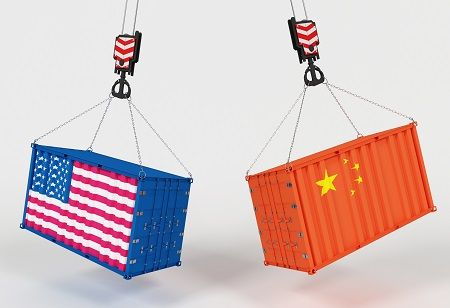
- U.S. and China finalize trade deal amid rare earth tensions.
- Agreement delays new tariffs and export restrictions.
- China to fast-track rare earth exports; fentanyl issue addressed.
President Donald Trump announced that the U.S. and China have reached a trade agreement and expressed optimism about finalizing a deal with India soon. Commerce Secretary Howard Lutnick informed Bloomberg TV that the agreement was finalized earlier this week. Lutnick and Trump both did not share any details regarding the agreement.
"We just signed with China the other day," Trump said late Thursday.
It remained uncertain whether the recent deal differed from the one Trump revealed two weeks prior, which he claimed would facilitate American industries' access to essential magnets and rare earth minerals. That agreement allowed the trade discussions to progress, while the U.S. consented to halt efforts to rescind visas of Chinese citizens at U.S. universities.
"China will approve the export applications of controlled items that meet the conditions in accordance with the law. The United States will cancel a series of restrictive measures taken against China accordingly. It is hoped that the United States and China will meet each other halfway," it said.
The agreement comes after preliminary discussions in Geneva in early May, which encouraged both parties to delay significant tariff increases that were poised to halt considerable trade between them. Subsequent discussions in London established a structure for negotiations, and the agreement referenced by Trump seemed to solidify that accord.
China has not disclosed any new agreements, but it declared earlier this week that it was accelerating the approval process for rare earth exports, materials utilized in high-tech products like electric vehicles. Beijing's restrictions on rare earth exports have been a significant source of dispute.
The Chinese Commerce Ministry announced on Thursday that Beijing was speeding up the evaluation of export license requests for rare earths and had authorized "a certain number of compliant applications."
Mineral export controls seem to have overshadowed tariffs in the recent trade talks between Beijing and Washington after China introduced permitting requirements for seven rare earth elements in April, posing a risk to the production of cars, robots, wind turbines, and other advanced products in the U.S. and globally.
Recently, China has also acted regarding the fentanyl problem, revealing last week that it would classify two additional substances as precursor chemicals for fentanyl, thus subjecting them to production, transportation, and export regulations.
Also Read: South Korea Trade Chief Seeks Tariff Relief in First US Talks
Trump has urged Beijing to take further action to curb the supply of precursor chemicals to Mexican drug cartels, which utilize them to produce fentanyl for distribution in the U.S. He enacted a 20% tariff on Chinese imports related to the fentanyl situation, constituting the largest segment of the existing 30% overall tariffs on Chinese products.
The deal made in May in Geneva urged both parties to reduce the punitive tariff increases enacted as Trump heightened his trade conflict and significantly augmented import duties. Certain elevated tariffs, like those set by Washington concerning fentanyl trade and taxes on aluminum and steel, are still enforced.
The swiftly changing policies are affecting both of the globe's two largest economies. The U.S. economy shrank at a 0.5% yearly rate from January to March, in part due to a spike in imports as businesses and consumers hurried to purchase international products before Trump could apply tariffs.
In China, factory earnings fell over 9% compared to the previous year in May, with automobile manufacturers experiencing a significant portion of that decline. They declined over 1% compared to the previous year during January-May. Trump and various U.S. officials have suggested they anticipate finalizing trade agreements with numerous other nations, including India.

